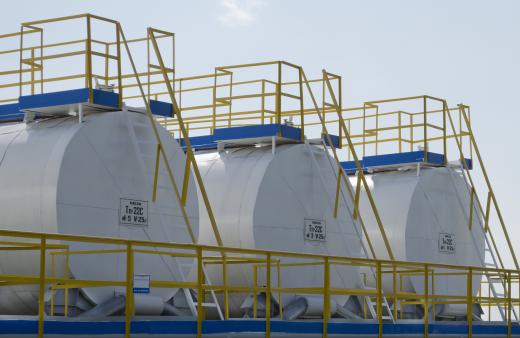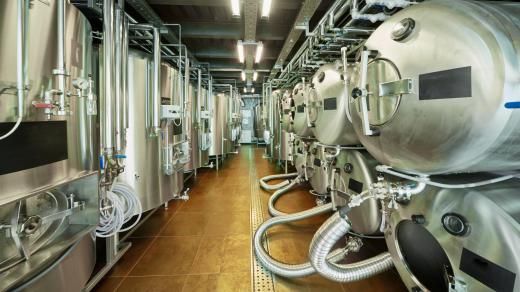What Is a Bacterial Filter?
 Mary McMahon
Mary McMahon
A bacterial filter is a filtration device or insert that prevents organisms above a certain size from passing through, limiting the movement of most bacteria. Such filters are useful on air supplies and other devices that may come into contact with sick patients, like spirometers used in evaluations of lung capacity. They are sold by scientific and medical suppliers and are sometimes available at hardware stores and similar locations.
The efficacy of a bacterial filter is determined by the size of the particles that can travel through it. The packaging should indicate the level of filtration provided. It may provide a measurement as well as an estimation of what percentage of organisms the filter should successfully block. Designers need to strike a balance when it comes to bacterial filter development. If the filter is not porous enough, air and other materials may not circulate, but if it is too porous, bacteria can pass through.

Air conditioning systems and air supplies often have a bacterial filter. The filter prevents bacteria from passing into a clean area and will keep people safer. In scientific labs where researchers may handle dangerous organisms, the hoods and vents over workstations also use filtration to prevent the escape of microorganisms. If any get loose, they will be trapped in the filter before they can reach the outside.

On medical devices like spirometers, breathing masks, and so forth, bacterial filters limit the spread of microorganisms between patients. They may be disposable or reusable, depending on the system. The system usually has a slot for a cartridge or sheet, and it may be possible to use standard bacterial filter products in addition to those supplied by the manufacturer. Reusable filters may have an indicator strip to warn the operator when the bacterial filter is about to expire, or it can be replaced on a schedule in accordance with use.

Such filters are also useful on water pumps and other fluid filtration systems. Bacteria and other microorganisms can build up in reservoirs, holding tanks, and similar environments. Filtration can prevent spread between containers and may also limit bacterial penetration of plumbing and municipal water supplies. Bacterial filters can also be very useful for activities like making beer and wine, where it is necessary to have ventilation to facilitate fermentation, but the brewer or winemaker does not want bacteria and other hazardous organisms to contaminate the batch in the tank.
AS FEATURED ON:
AS FEATURED ON:













Discuss this Article
Post your comments